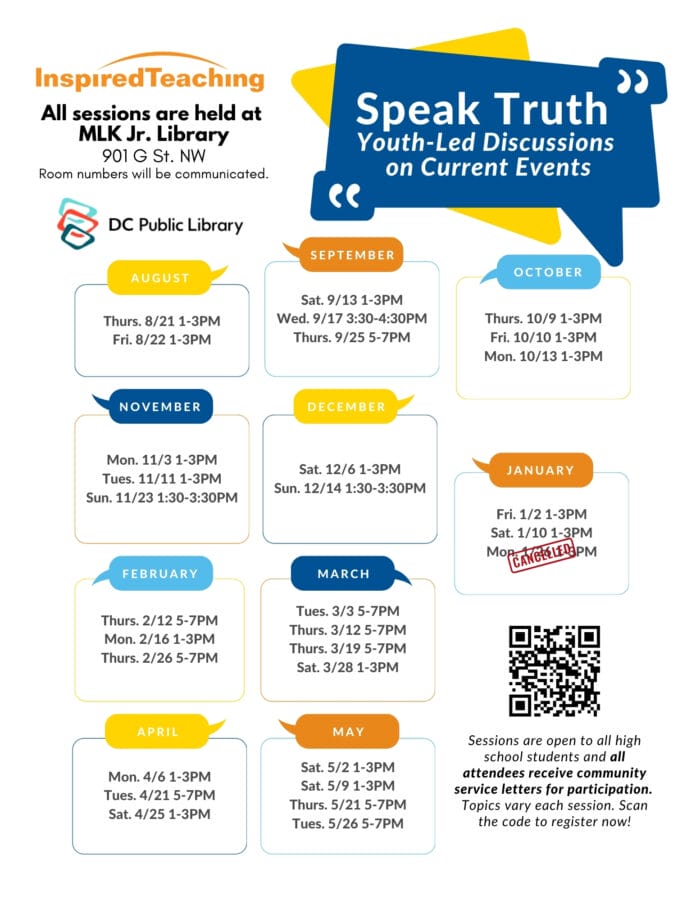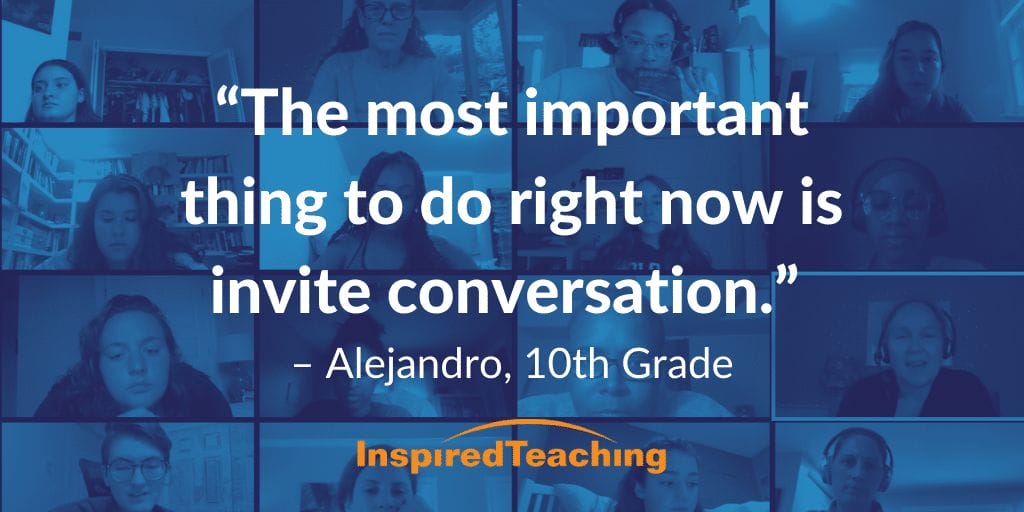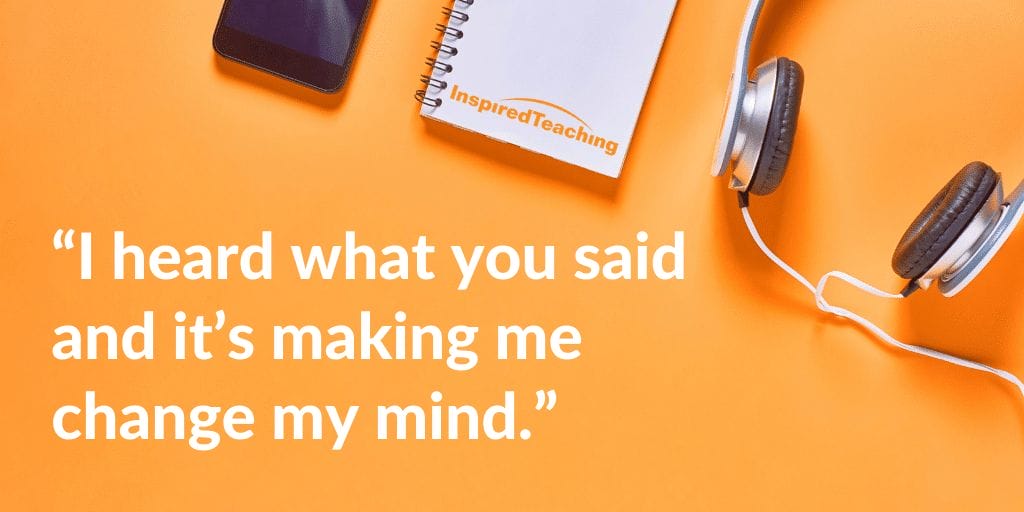Speak Truth
How can we hope for a better future if our children aren’t learning how to talk to each other?
Young people want to learn how to engage across differences with curiosity and respect. School can, and should, be the place where this happens.
Through student-led conversations, Speak Truth participants learn to discuss current, controversial topics in a productive and respectful manner. These thought-provoking conversations teach students to defend their stances on myriad issues—gentrification, immigration, college admissions, gun violence in America, social media, and more—and help them develop and recognize the power of their voices.
As a national model for civic discourse and dialogue among young people, Speak Truth seminars have the power to shape a generation of socially conscious future leaders and citizens who can build a better future for us all.

Students tackle current, complex, and controversial topics, such as lowering the voting age, school safety, criminal justice reform, and student well-being, with curiosity and respect for one another, in each Speak Truth seminar. Want to be part of the experience this year? Sign up today to receive regular updates about upcoming events, topics, and opportunities to facilitate.
Read the issues of Hooray For Monday below for more insight into recent Speak Truth sessions and how, as a model of the Inspired Teaching Approach in action, the program addresses each of the 5 Core Elements.
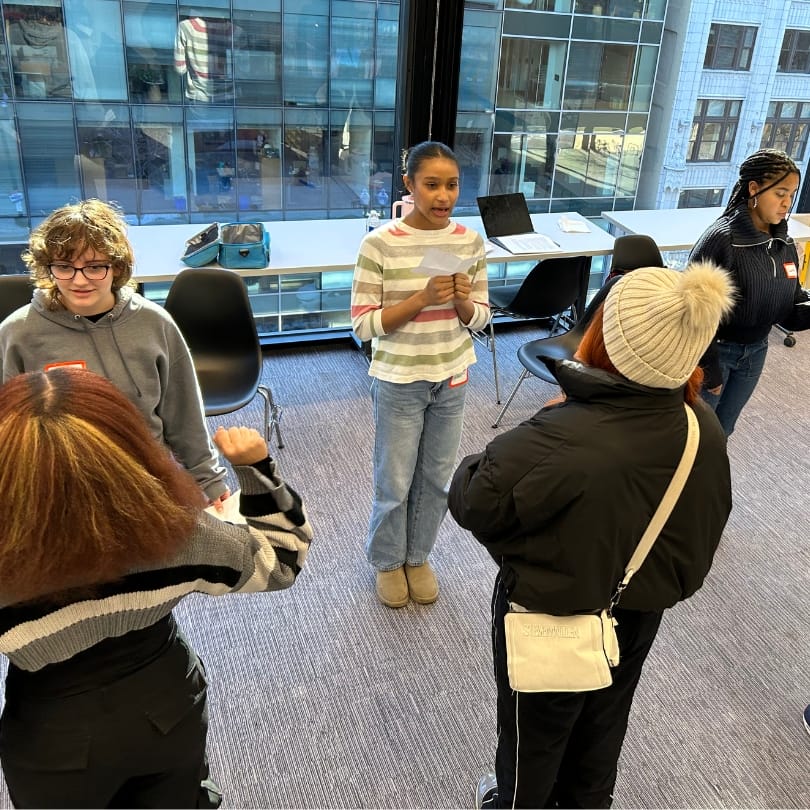
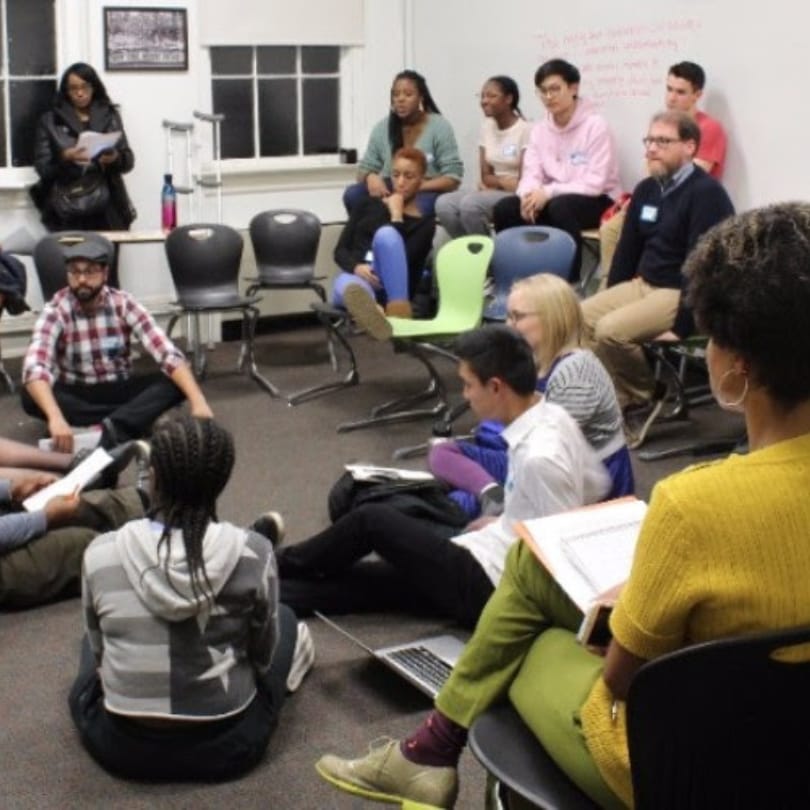

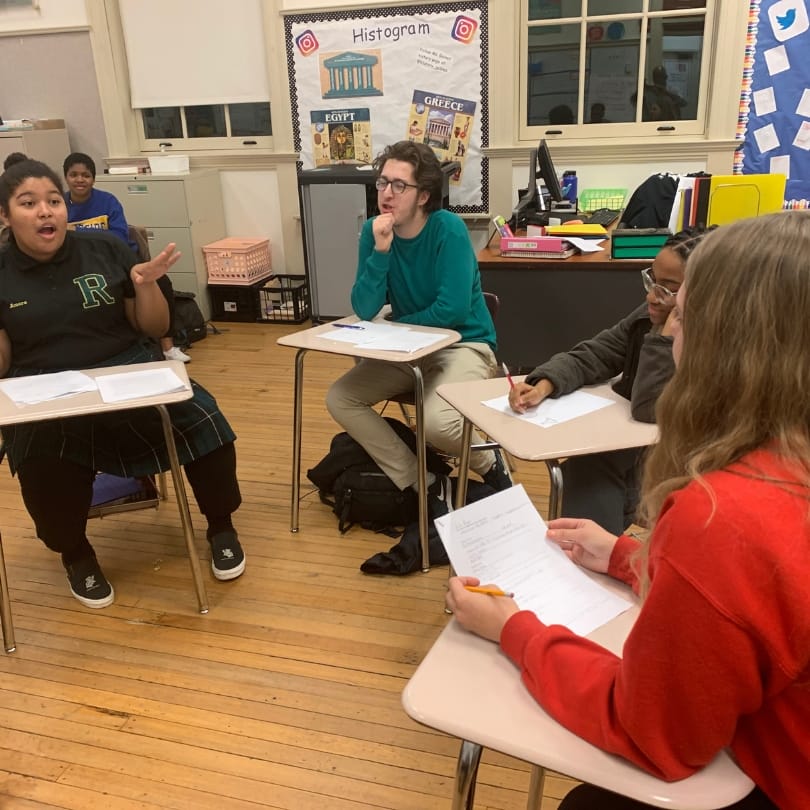

Past Speak Truth Seminars
Past Topics Include: The Future of School • The Voting Age • Immigration and Deportation • Criminal Justice Reform and the Prison System • Climate Change • College Admissions • Violence in Schools • Consent and Dating • The Pros and Cons of Social Media • Colorism • Cultural Appropriation • Wealth Inequality • Destigmatizing Mental Health • The Criminalization of Sex Work • The Politics of Black Hair • Standardized Testing and the Value of Grades • Elections and the Constitution
Teachers: Bring Speak Truth to Your School
Young people care about issues affecting them and the world around them. Their concerns don’t always line up with the curriculum, and teachers don’t always have the time, tools, or resources to explore their students’ interests. Yet we know elevating youth voices is critically important not only for students’ well-being but for their development as problem-solvers and future leaders. The Speak Truth model presented in this Guide offers a way to bring meaningful student-led conversations into the classroom. Whether you host a Speak Truth session once a quarter, once a week, or every day, you will be creating a valuable space for learning where young voices and curiosity can grow.
Standards Addressed
Speak Truth meets the OSSE standards for community service in that it is “1. unpaid and 2. provides a societal benefit.” The societal benefit comes in the form of students teaching and learning from one another about critical issues in their lives and learning how to speak across differences – a critical need in our society. Speak Truth events are student-led and are designed so that every single participant engages in the discussion. Speak Truth also meets the DCPS criteria for community service activities that involve advocacy. After every Speak Truth discussion, participants use what they have learned from one another to engage in outreach to “influence citizens and policymakers to change their behavior, encourage action, and/or increase awareness around a community need.” The particulars of this action are dependent on the topics being discussed.
Common Core College and Career Readiness Anchor Standards for Language
Conventions of Standard English:
CCSS.ELA-LITERACY.CCRA.L.1 Demonstrate command of the conventions of standard English grammar and usage when writing or speaking.
Knowledge of Language:
CCSS.ELA-LITERACY.CCRA.L.3 Apply knowledge of language to understand how language functions in different contexts, to make effective choices for meaning or style, and to comprehend more fully when reading or listening.
Vocabulary Acquisition and Use:
CCSS.ELA-LITERACY.CCRA.L.6 Acquire and use accurately a range of general academic and domain-specific words and phrases sufficient for reading, writing, speaking, and listening at the college and career readiness level; demonstrate independence in gathering vocabulary knowledge when encountering an unknown term important to comprehension or expression.
Common Core College and Career Readiness Anchor Standards for Writing
Text Types and Purposes:
CCSS.ELA-LITERACY.CCRA.W.1 Write arguments to support claims in an analysis of substantive topics or texts using valid reasoning and relevant and sufficient evidence.
Production and Distribution of Writing:
CCSS.ELA-LITERACY.CCRA.W.4 Produce clear and coherent writing in which the development, organization, and style are appropriate to task, purpose, and audience.
CCSS.ELA-LITERACY.CCRA.W.6 Use technology, including the Internet, to produce and publish writing and to interact and collaborate with others.
Research to Build and Present Knowledge:
CCSS.ELA-LITERACY.CCRA.W.7 Conduct short as well as more sustained research projects based on focused questions, demonstrating understanding of the subject under investigation.
CCSS.ELA-LITERACY.CCRA.W.8 Gather relevant information from multiple print and digital sources, assess the credibility and accuracy of each source, and integrate the information while avoiding plagiarism.
CCSS.ELA-LITERACY.CCRA.W.9 Draw evidence from literary or informational texts to support analysis, reflection, and research.
Common Core College and Career Readiness Anchor Standards for Speaking and Listening
Comprehension and Collaboration:
CCSS.ELA-LITERACY.CCRA.SL.1 Prepare for and participate effectively in a range of conversations and collaborations with diverse partners, building on others’ ideas and expressing their own clearly and persuasively.
CCSS.ELA-LITERACY.CCRA.SL.2 Integrate and evaluate information presented in diverse media and formats, including visually, quantitatively, and orally.
CCSS.ELA-LITERACY.CCRA.SL.3 Evaluate a speaker’s point of view, reasoning, and use of evidence and rhetoric.
Presentation of Knowledge and Ideas:
CCSS.ELA-LITERACY.CCRA.SL.4 Present information, findings, and supporting evidence such that listeners can follow the line of reasoning and the organization, development, and style are appropriate to task, purpose, and audience.
CCSS.ELA-LITERACY.CCRA.SL.5 Make strategic use of digital media and visual displays of data to express information and enhance understanding of presentations.
CCSS.ELA-LITERACY.CCRA.SL.6 Adapt speech to a variety of contexts and communicative tasks, demonstrating command of formal English when indicated or appropriate.
Common Core College and Career Readiness Anchor Standards for Reading
Key Ideas and Details:
CCSS.ELA-LITERACY.CCRA.R.1 Read closely to determine what the text says explicitly and to make logical inferences from it; cite specific textual evidence when writing or speaking to support conclusions drawn from the text.
CCSS.ELA-LITERACY.CCRA.R.3 Analyze how and why individuals, events, or ideas develop and interact over the course of a text.
Craft and Structure:
CCSS.ELA-LITERACY.CCRA.R.6 Assess how point of view or purpose shapes the content and style of a text.
Integration of Knowledge and Ideas:
CCSS.ELA-LITERACY.CCRA.R.7 Integrate and evaluate content presented in diverse media and formats, including visually and quantitatively, as well as in words.
CCSS.ELA-LITERACY.CCRA.R.8 Delineate and evaluate the argument and specific claims in a text, including the validity of the reasoning as well as the relevance and sufficiency of the evidence.
CCSS.ELA-LITERACY.CCRA.R.9 Analyze how two or more texts address similar themes or topics in order to build knowledge or to compare the approaches the authors take.
Range of Reading and Level of Text Complexity:
CCSS.ELA-LITERACY.CCRA.R.10 Read and comprehend complex literary and informational texts independently and proficiently.
College, Career, and Civic Life (C3) Framework for Social Studies State Standards
| Dimension 1: Developing Questions and Planning Inquiries | Dimension 2: Applying Disciplinary Tools and Concepts | Dimension 3: Evaluating Sources and Using Evidence | Dimension 4: Communicating Conclusions and Taking Informed Action |
|---|---|---|---|
| Developing Questions and Planning Inquiries | Civics | Gathering and Evaluating Sources | Communicating and Critiquing Conclusions |
| Economics | |||
| Geography | Developing Claims and Using Evidence | Taking Informed Action | |
| History |
Collaborative for Academic, Social, and Emotional Learning Competencies
Self-Awareness: The abilities to understand one’s own emotions, thoughts, and values and how they influence behavior across contexts. This includes capacities to recognize one’s strengths and limitations with a well-grounded sense of confidence and purpose.
Self-management: The abilities to manage one’s emotions, thoughts, and behaviors effectively in different situations and to achieve goals and aspirations. This includes the capacities to delay gratification, manage stress, and feel motivation and agency to accomplish personal and collective goals.
Social awareness: The abilities to understand the perspectives of and empathize with others, including those from diverse backgrounds, cultures, and contexts. This includes the capacities to feel compassion for others, understand broader historical and social norms for behavior in different settings, and recognize family, school, and community resources and supports.
Responsible decision-making: The abilities to make caring and constructive choices about personal behavior and social interactions across diverse situations. This includes the capacities to consider ethical standards and safety concerns, and to evaluate the benefits and consequences of various actions for personal, social, and collective well-being.
Relationship skills: The abilities to establish and maintain healthy and supportive relationships and to effectively navigate settings with diverse individuals and groups. This includes the capacities to communicate clearly, listen actively, cooperate, work collaboratively to problem solve and negotiate conflict constructively, navigate settings with differing social and cultural demands and opportunities, provide leadership, and seek or offer help when needed.
OSSE 2024-2025 Updated SEL Standards
Competency 3: Social and Cultural Awareness
SCA.9-11.1 Recognizes the effects of words and actions on others’ emotions, including how
one’s own words and actions affect others’ words and actions
SCA.9-11.3 Demonstrates more than one positive way to express understanding of differing
perspectives
SCA.9-11.4 Articulates verbally or in writing an experience that demonstrates the
importance of valuing and learning from the perspective of others
SCA.9-11.8 Engages in different settings with appropriate norms that show sensitivity to and
appreciation of the culture, values and identities of others
SCA.9-11.9 Reflects on one’s own beliefs relative to different familial and societal norms
Competency 4: Relationship Skills
RS.9-11.1 Models appropriate communication skills (e.g., empathic listening, compassion,
reflective language) that honor cultural competency, relationships and safety
RS.9-11.9 Demonstrates listening and speaking skills to help prevent and resolve conflicts
Competency 5: Decision-Making and Agency
DMA.9-11.1 Demonstrates curiosity and openmindedness
Everyone in this discussion was honest about not knowing certain things.
